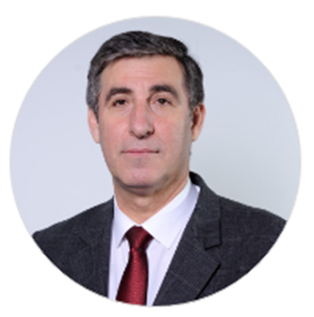Need Help?
14 June 2023
Interview with Dr. Costică Bejinariu—Winner of the Coatings 2022 Outstanding Reviewer Award
We would like to thank the award committee of Coatings (ISSN: 2079-6412) for their hard work in selecting two winners from such a large number of exceptional candidates, with Dr. Costică Bejinariu being one of the winners. We will continue to reward reviewers with the Outstanding Reviewer Award to acknowledge their efforts in maintaining the high quality and quick turnaround time of the journal, and we wish them every success in their careers.

Short biography: Dr. Costică Bejinariu is a full professor and researcher at Gheorghe Asachi Technical University of Iasi, Romania, with over 35 years of academic experience. He also holds the position of Vice Dean at the Faculty of Materials Science and Engineering and has been a Ph.D. supervisor since 2009. He has completed five doctoral theses and currently supervises 10 doctoral students.
Dr. Costică Bejinariu’s main field of expertise is materials engineering. He has published 25 books/chapters and monographs, over 250 research papers with more than 1000 citations, and possesses an h-index of 18-WoS/20-Scopus. He has worked on over 50 scientific research and development contracts; for 5 of which he was the project director, and for 2 projects he worked as the project manager. Furthermore, he owns 12 invention patents in the field of materials engineering, which were presented at numerous invention conferences, where he was awarded medals.
Dr. Costică Bejinariu is an active member of several professional associations in the field, a reviewer for multiple scientific journals, and is on scientific committees of different congresses. He is a member of the Committee of Materials Engineering, Engineering and Materials Science of the National Council for Attestation of University Titles, Diplomas and Certificates (CNATDCU), which is an independent, national consulting entity in Romania.
Contact emails: [email protected]; [email protected]; [email protected]; [email protected]
We hope you enjoy the interview.
1. Could you give a brief introduction of yourself to the readers?
I am a university professor at Gheorghe Asachi Technical University in Iasi, Romania, and am involved in both teaching and research. The main subject that I teach undergraduate students is materials technology, materials science and engineering, a subject with content related to the elaboration of metallic materials and the processing of metallic materials via casting, plastic deformation, welding, etc. As a secondary discipline, I teach assessment of occupational injury and illness risks to master's degree students. I conduct research with doctoral and postdoctoral students in the field of materials engineering.
2. What is your current research and why did you choose this research field?
Currently, my main research is focused on the field of coatings via the conversion of metallic materials, in this case, the formation of phosphate layers on the surfaces of some metallic materials, mainly to improve steel corrosion resistance or to improve osseointegration for some biomaterials based on titanium.
3. Which research topics do you think will be of particular interest to the research community in the coming years?
In the materials engineering field, in the near future, the trends will be those of replacing some polymeric materials with biodegradable materials and the design of new materials with superior, multifunctional properties, such as smart materials with shape memory or transparent metallic materials.
4. Have you ever encountered any difficulties conducting research? How did you overcome them?
When you begin materials engineering research, the success rate is about 70%. In 30% of cases, either one abandons the research with the publication of the results so that other researchers don’t repeat the same work without success, or some surprising results appear, leading to more successful research.
5. What qualities do you think young scientists need?
Young people with a passion for research need perseverance and strong motivation. I, for example, with my experience gained so far, would not approach some research topics. Young people, however, in the unconsciousness of youth, may approach these topics and the result of their work may be a great success.
6. Can you briefly describe the key to a happy laboratory life?
If you are dedicated to working in the laboratory, the joy comes when the results appear. Being absorbed in your work leads to the intensification of your work, which helps with the dissemination of the results, and thus a happy life in the laboratory.
7. If you have the opportunity, will you actively apply to attend academic conferences? What do you think you can learn from participating in conferences?
The dissemination of results is key to laboratory work development. The exchange of experiences by participating in academic conferences, during the discussion of the results of the presented work, creates the opportunity for improving the work in your laboratory.
8. What do you think are the main criteria that should be taken seriously in the process of reviewing manuscripts?
First, the reviewer guidelines for each journal or group of journals must be followed. Second, each scientific paper is unique and must be reviewed according to the proposed objective, the results obtained, the interpretation of the results, and the drawing of conclusions. This should be achieved by using the research results under discussion.
9. We are an open access journal. How do you think open access impacts reviewers and authors?
Open access journals represent the optimal category of journals today and in the near future. Authors can easily consult scientific works with reference to the current stage of development in the narrow field that they are studying, and the reviewers can check the work much more easily with free access to the bibliography used. The time for evaluating the work is greatly reduced, and the quality of the evaluation is superior.

